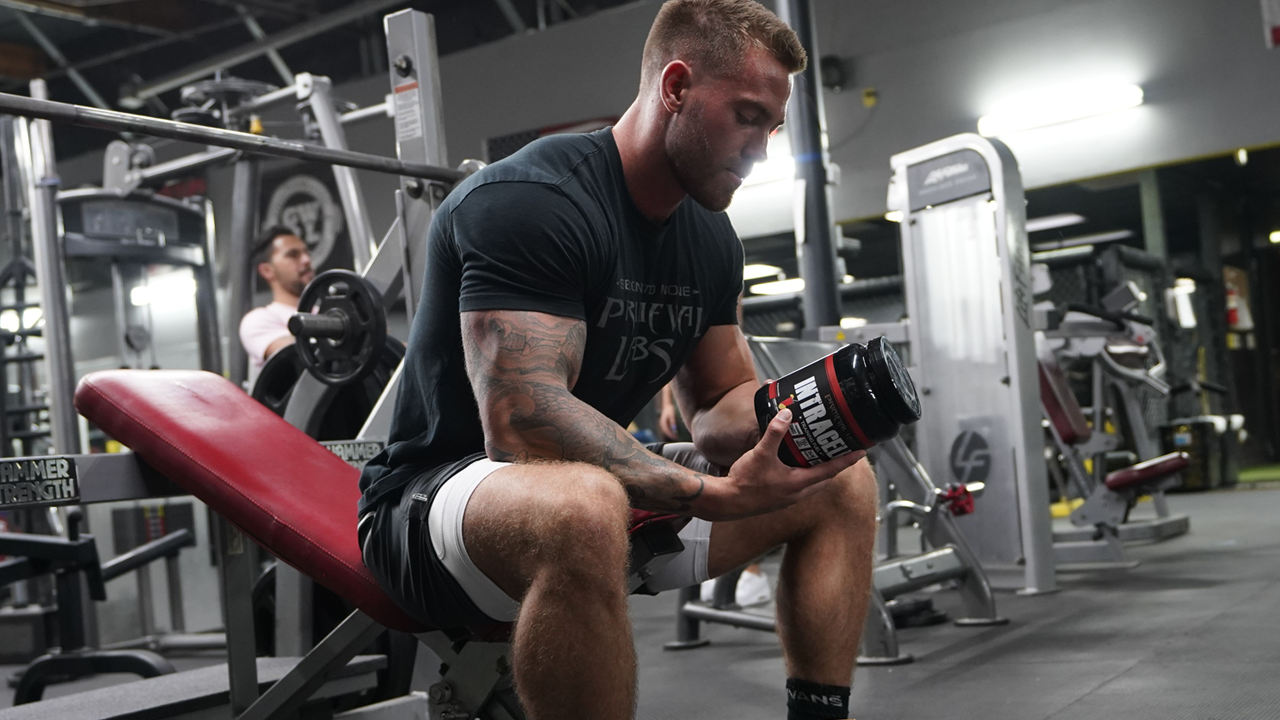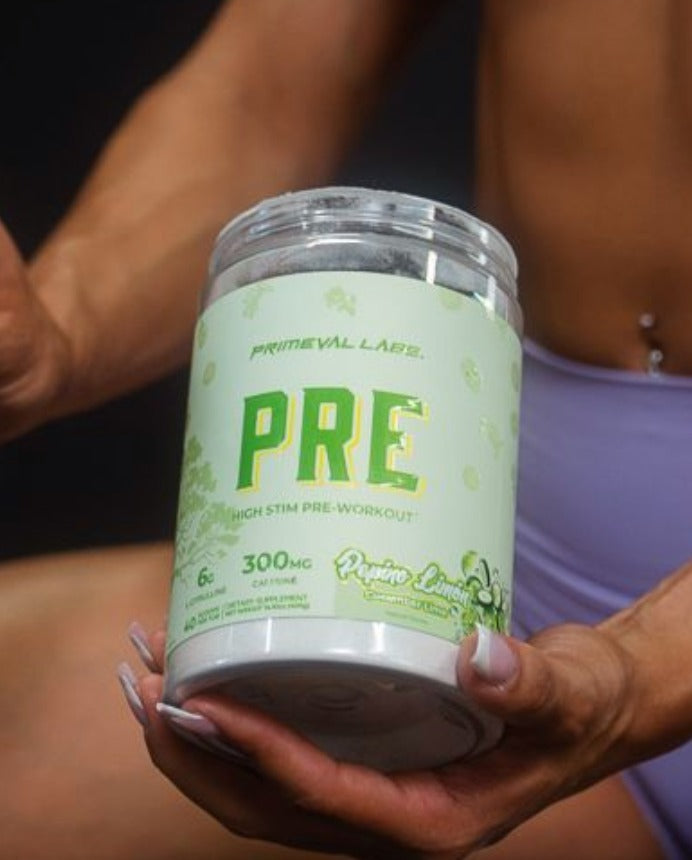The dawn of a new year is upon us, and with it, millions (perhaps billions) of individuals around the world will make all sorts of resolutions.
Unfortunately, the vast majority of resolutions go unfulfilled for a myriad of reasons. Some make resolutions that are too lofty or unrealistic. Others simply lack the effort or initiative to tackle their resolutions. Then, there are those who set realistic goals and have the drive to complete them, but life throws them several curve balls.
Whatever your situation, here are 5 New Year’s Resolutions you can keep this year (and every other year afterwards) that will improve your health and performance.
5 Healthy New Year’s Resolutions You Can Keep
#1 Eat More Fruits & Veggies
One of the most profound (and simplest) things you can do for your health, performance and recovery is to eat more fruits and vegetables.
Fruits and veggies are loaded with healthy carbohydrates and fiber as well as essential vitamins, minerals, and potent polyphenols and antioxidants
Numerous studies also indicate that individuals who follow diets heavily biased towards whole foods have greater improvements in cholesterol, blood sugar, body weight and many other risk factors.[1,2,3]
So often when it comes to making new year’s resolutions or weight loss transformations, we think of removing or eliminating things, which can lead to feelings of deprivation. However, this healthy new year’s resolution actually encourages you to eat more...whole foods that is.
If you’re presently not consuming a lot of fruits and veggies, start by making small changes -- adding a serving of either fruit or veggies to your breakfast. Once you have that small change ingrained in your daily habits, start to apply it in turn to the other meals throughout the day.
And, if you’re looking for extra help in consuming enough fruits and veggies each day, you can incorporate a fruits and veggies supplement, such as Day2Day.
Day2Day is a premium-quality fruits & greens supplements supplying 14 different fruits and vegetables along with a comprehensive blend of digestive enzymes to support nutrient breakdown and absorption.
#2 Get More Sleep
Building upon the previous point of adding more instead of taking away, another healthy new year’s resolution you can make (and keep) is to get more sleep each night.
The impact sleep has on your ability to feel good, perform well (physically and mentally), and be in a state of good metabolic health can’t be emphasized heavily enough.
Sleep affects every facet of life, and not getting enough of it has consequences far beyond leaving you feeling groggy.
Sleep deprivation is known to[4,5,6,7]:
- Impair energy metabolism
- Increase feelings of hunger
- Decrease feelings of satiety
- Decrease protein synthesis
- Impair muscle recovery and growth
- Increase stress & cortisol
- Lower mood & motivation
- Increase risk of weight gain
- Increase risk of chronic disease
Basically, not getting enough sleep runs counter to just about any goal you have, be it fat loss, muscle gain, or general health and wellness.
Despite the importance sleep plays, many individuals still struggle to get enough quality sleep each night. To improve sleep quality and duration, it may be helpful to try the following:
- Decrease blue light exposure and screen time 2 hours before bed
- Set a bedtime and stick to it
- Establish a bedtime ritual
- Limit caffeine and alcohol in the hours before bed
- Avoid sources of stress before bed (email, texts, social media, news, etc.)
- Make your room cool, dark, and comfortable
- Wear loose, lightweight, comfortable clothing to bed
- Stretch/Meditate
- Read a book
You can also try using a nighttime relaxation and recovery aid, such as EAA Sleep, which contains natural ingredients like L-Theanine and melatonin, that helps promote feelings of calm, relaxation, allowing you to drift peacefully off to sleep.
#3 Cook More
Dining out has become the normal way of life for many people for a myriad of reasons, but one of the most commonly cited reasons (“excuses”) for grabbing take-out or hitting the drive-thru is due to a lack of time.
The truth, though, is that cooking healthy, delicious food doesn’t have to be time-consuming or expensive. Heck, we’ve even created several healthy recipe cookbooks to help you get started if you’re feeling unsure about your culinary craftsmanship.
Research also shows that individuals who eat 5 or more home-cooked meals per week significantly less likely to be overweight, compared with those who ate less than 3 home-cooked meals per week.[8]
If you’re feeling a bit timid or overwhelmed by having to prepare all of your food for the week, start slowly. Try cooking just one meal per day, or batch cooking a giant pot of something on the weekend so that you have an entire week’s worth of lunches or dinners ready to go.
Then, as your confidence increases, you can start cooking more and more of your meals each day and/or creating more intricate recipes. Not only will you develop a new skill, you’ll also be doing your wallet and waistline a favor!
#4 Spend More Time Outdoors
Now, possibly more than ever, we’re spending more time indoors and less time outdoors. This has a number of unintended consequences, not the least of which is an adverse impact on vitamin D levels.
It’s well-known that significant portions of the population are deficient in vitamin D.
The vitamin plays a number of critical roles in the body, including hormone production, bone health, and immune function. Deficiencies in the “sunshine vitamin” are also associated with a number of adverse outcomes.
If you need further reason to spend more time outside, then consider this -- research finds that being outdoors can help relieve stress, boost mood, and lower blood pressure.[9]
As we head into the new year, make it a goal to spend more time outdoors each day. It could be something as simple as going for a 10-minute walk once a day, and on the weekends going for a longer walk or hike.
Regardless of how you spend more time outdoors this coming year, make it a goal to do it!
#5 Be More Present
Living less distracted and taking greater onus on yourself to be more present in the moment can help you make the most of each day in the new year.
Technology has afforded us many benefits (such as being able to read this article on your computer, tablet, or smartphone instead of a magazine), but the many advances of technology have also led us to become overly reliant on it and more detached from our daily experiences and encounters.
When was the last time you saw a group of people sitting down at a restaurant and actually talking?
More likely at least one, if not all, of them were staring at their phones instead of enjoying the company and conversation of each other.
This state of distraction and overt phone attachment has extended into the gym where the average person spends more time goofing off on their phone checking social media or snapping selfies than they actually do training. Yet, many individuals still wonder why they struggle to see results.
But, if they actually took stock of how hard they're training and how "present" they are being in the gym, they'd realize they're not actually training as hard as they could.
In times like this, it can be beneficial to use a premium-quality pre workout supplement, such as Ape Sh*t pre workout, which helps boost energy and focus, allowing you to dial-in to the task at hand and get more results from your training.
Overall, we depend on our phones, laptops, and computers for everything these days, including both work and entertainment.
Yet, research indicates that spending too much time with our electronic masters — particularly on social media — is associated anxiety, depression, and loneliness.[10]
On the flip side, other research shows that being more present can boost feelings of satisfaction by decreasing negative thoughts.[11]
To help be more present in all areas of your life, spend less time on screens, take time to literally stop and smell the roses (especially when you’re spending more time outdoors), and engage with others when you’re in their presence.
Takeaway
The new year is a time for reflection and rebirth. Yet many resolutions only last a short time.
The healthy New Year’s resolutions listed above are easy to implement and, more importantly, sustainable. This new year, try one or all of these healthy resolutions and make this year the year that you stick with your resolution!
References
- Wright N, Wilson L, Smith M, Duncan B, McHugh P. The BROAD study: A randomised controlled trial using a whole food plant-based diet in the community for obesity, ischaemic heart disease or diabetes. Nutr Diabetes. 2017;7(3):e256. Published 2017 Mar 20. doi:10.1038/nutd.2017.3
- Manheimer EW, van Zuuren EJ, Fedorowicz Z, Pijl H. Paleolithic nutrition for metabolic syndrome: systematic review and meta-analysis. Am J Clin Nutr. 2015;102(4):922-932. doi:10.3945/ajcn.115.113613
- Wang PY, Fang JC, Gao ZH, Zhang C, Xie SY. Higher intake of fruits, vegetables or their fiber reduces the risk of type 2 diabetes: A meta-analysis. J Diabetes Investig. 2016;7(1):56-69. doi:10.1111/jdi.12376
- Kazem YM, Shebini SM, Moaty MI, Fouad S, Tapozada ST. Sleep Deficiency is a Modifiable Risk Factor for Obesity and Cognitive Impairment and Associated with Elevated Visfatin. Open Access Maced J Med Sci. 2015;3(2):315-321. doi:10.3889/oamjms.2015.063
- Greer SM, Goldstein AN, Walker MP. The impact of sleep deprivation on food desire in the human brain. Nat Commun. 2013;4:2259. doi:10.1038/ncomms3259
- Rihm JS, Menz MM, Schultz H, Bruder L, Schilbach L, Schmid SM, Peters J. Sleep Deprivation Selectively Upregulates an Amygdala-Hypothalamic Circuit Involved in Food Reward. J Neurosci. 2019 Jan 30;39(5):888-899. doi: 10.1523/JNEUROSCI.0250-18.2018. Epub 2018 Dec 17. PMID: 30559151; PMCID: PMC6382977.
- Schwarz, P., Graham, W., Li, F., Locke, M., & Peever, J. (2013). Sleep deprivation impairs functional muscle recovery following injury. Sleep Medicine, 14, e262. https://doi.org/https://doi.org/10.1016/j.sleep.2013.11.638
- Mills S, Brown H, Wrieden W, White M, Adams J. Frequency of eating home cooked meals and potential benefits for diet and health: cross-sectional analysis of a population-based cohort study. Int J Behav Nutr Phys Act. 2017;14(1):109. Published 2017 Aug 17. doi:10.1186/s12966-017-0567-y
- Kondo MC, Jacoby SF, South EC. Does spending time outdoors reduce stress? A review of real-time stress response to outdoor environments. Health Place. 2018 May;51:136-150. doi: 10.1016/j.healthplace.2018.03.001. Epub 2018 Mar 29. PMID: 29604546.
- Madhav KC, Sherchand SP, Sherchan S. Association between screen time and depression among US adults. Prev Med Rep. 2017;8:67-71. Published 2017 Aug 16. doi:10.1016/j.pmedr.2017.08.005
- Felsman P, Verduyn P, Ayduk O, Kross E. Being present: Focusing on the present predicts improvements in life satisfaction but not happiness. Emotion. 2017 Oct;17(7):1047-1051. doi: 10.1037/emo0000333. Epub 2017 Jun 26. PMID: 28650188.















Leave a comment
This site is protected by hCaptcha and the hCaptcha Privacy Policy and Terms of Service apply.